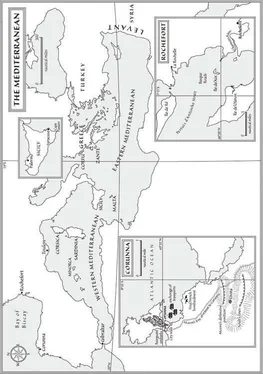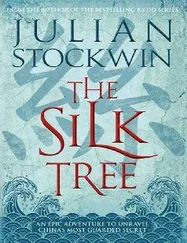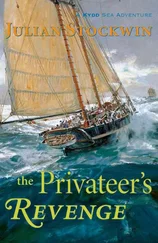Julian Stockwin - The Iberian Flame - Thomas Kydd 20
Здесь есть возможность читать онлайн «Julian Stockwin - The Iberian Flame - Thomas Kydd 20» весь текст электронной книги совершенно бесплатно (целиком полную версию без сокращений). В некоторых случаях можно слушать аудио, скачать через торрент в формате fb2 и присутствует краткое содержание. Год выпуска: 2018, Издательство: Hodder & Stoughton, Жанр: Старинная литература, на английском языке. Описание произведения, (предисловие) а так же отзывы посетителей доступны на портале библиотеки ЛибКат.
- Название:The Iberian Flame: Thomas Kydd 20
- Автор:
- Издательство:Hodder & Stoughton
- Жанр:
- Год:2018
- ISBN:нет данных
- Рейтинг книги:3 / 5. Голосов: 1
-
Избранное:Добавить в избранное
- Отзывы:
-
Ваша оценка:
- 60
- 1
- 2
- 3
- 4
- 5
The Iberian Flame: Thomas Kydd 20: краткое содержание, описание и аннотация
Предлагаем к чтению аннотацию, описание, краткое содержание или предисловие (зависит от того, что написал сам автор книги «The Iberian Flame: Thomas Kydd 20»). Если вы не нашли необходимую информацию о книге — напишите в комментариях, мы постараемся отыскать её.
The Iberian Flame: Thomas Kydd 20 — читать онлайн бесплатно полную книгу (весь текст) целиком
Ниже представлен текст книги, разбитый по страницам. Система сохранения места последней прочитанной страницы, позволяет с удобством читать онлайн бесплатно книгу «The Iberian Flame: Thomas Kydd 20», без необходимости каждый раз заново искать на чём Вы остановились. Поставьте закладку, и сможете в любой момент перейти на страницу, на которой закончили чтение.
Интервал:
Закладка:
‘The glory hole, begob!’
Kydd grinned. This was the hideaway most merchant ships possessed for valuable men they wanted hidden from the press. ‘Go to it, Toby.’
In minutes he’d returned with a struggling Marceau. ‘Scragged the bugger! An’ there’s a couple more we’ve caught with him as can wait.’
Marceau gave a sorrowful shrug but said nothing.
Kydd had his proof. He could give warning and be believed – but in his surge of satisfaction, an iron coolness intervened.
Millbay opened out directly into Plymouth Sound and the open sea. The obvious time to set sail was at the top of the tide, catching the full flow of the ebb. And that would be in a very short while, at a little after three – in less than fifteen minutes.
There would have to be a meticulously prepared form of revolt of all the Preussens at the same instant, timed to happen at the turn of the tide. Therefore what better signal to rise up than the prison clock striking the hour nearest this?
It had to be.
Kydd snatched out his fob watch – bare minutes to go.
It would be no good warning the prison – that would tip off the plotters and trigger the uprising. The nearest military were the Royal Marines in Stonehouse barracks, a good half an hour away. To get to them, turn out a fair-sized detachment and march them back would take more than an hour, far too late. The Citadel, the main garrison fort? But that was on the other side of Plymouth Hoe, even further.
Only one thing could stop the break and Kydd didn’t hold back. ‘Toby, we put blockade on the chokey until we get help. Rouse out every hand from the taphouses to muster at the prison gate. Those who come I’ll square up with a good fist o’ stingo afterwards.’
With roars of good humour the taverns began clearing of seamen, who converged on the prison gate carrying improvised weapons – lumps of wood, chair legs, fire pokers.
At the massive black gates they stopped, spreading out as more and more arrived, fifty, a hundred, two hundred.
Above, in the walkway of the clock tower, a sentry gaped down at the throng. As he did so the clock struck three – and almost immediately he was snatched out of sight.
‘Stand by!’ Kydd hissed.
From inside there were scuffles, shouts and a single shot.
The gates swung wide and a flood of prisoners raced out impatiently.
They were met with a vast roar from the King’s men, who fell on them with a will. Swinging their weapons gleefully in an unholy scrimmage, they were soon driving them back inside.
‘Hold the gate!’ Kydd bellowed.
They’d won – and a little later came the sound of marching feet as the Royal Marines swung into view, responding to a hasty note Kydd had sent when he’d apprehended Marceau.
Chapter 10

The Bay of Biscay
Kydd squinted up into the shrieking rigging, clinging to a shroud as Tyger laboured in the heavy weather, her deck heaving and falling as the seas on her quarter added a vicious twist to her motions.
Just days after the prisoner escape attempt had been foiled, Kydd had sailed to join Admiral Collingwood’s fleet in its traditional station off Cádiz. Now he was facing a North Atlantic blow of unseasonal vileness.
Long known as a ‘foul-weather jack’, Kydd took grave pleasure in Nature’s sensual assault of wind and seas, a tactile reminder that a prudent mariner never defied Neptune but was always ready to concede, conform, then turn to account the wild ride to follow.
‘We’ll take a double reef in those topsails,’ he ordered. The big driving courses had long since been furled and, in deference to the wind’s direction relative to their track, most head-sails had been taken in as well.
The hard conditions were unrelenting, but on their way around Ushant from Plymouth, they’d distantly sighted the Brest blockade squadron, hardly recognisable in the flying white murk, in line ahead, contemptuously leaving close to leeward the frightful chain of rocks out from Pointe du Toulinguet.
Those ships had endured for months in this hard weather and would faithfully stay where they were into the indefinite future, locking the door on the great French fleet that lay within Brest. How could Tyger complain when her orders were sending her on through this to the sub-tropical balminess of Cádiz?
It had been sobering to learn from the Plymouth port admiral in his instructions on sailing that Bonaparte was far from resigned to the stalemate that saw him victorious but impotent on land while England roamed the seas without rival. Since Trafalgar, he’d acquired through conquest and a massive shipbuilding effort at least eighty line-of-battle ships, more than replacing his losses, with another twenty on order. And all the time the invasion fleet of barges in the French Channel ports remained at the ready, their numbers ever-increasing.
The only reason they hadn’t been unleashed in an all-conquering storm on the shores of Britain was the watchfulness of the blockade squadrons lying relentlessly athwart the big naval ports of France, preventing their combining together in an irresistible armada.
Stretched to their limits, the Channel Fleet kept the seas off Cherbourg, Brest, Rochefort and many minor ports. Other squadrons clamped their hold on the Spanish at Ferrol, Corunna and Cádiz, while the Mediterranean Fleet kept a tight grip on Toulon. Absence or failure in their task would be calamitous; in fair weather or foul the heavy battleships were on station within rapid striking distance of the enemy harbours, while frigates and a host of smaller craft daily sailed within sight of the berths and anchorages in daring reconnaissance.
Kydd glanced forward as the fore-topsail was laid for reefing. It took judgement to brace it around to the right angle to take the strain off the canvas and allow the men out on the yard. He liked to see the sail just lifting rather than the fretful movements of ‘splitting the wind’. This was being done, and he was pleased to see Brice on deck, standing back to let Midshipman Rowan make the call. The young lad, who’d initially disarmed him with eyes so like Persephone’s, was showing promise.
The weather braces rounded in and reef tackles hauled out, the topmen passed the second reef, pinning the first to the big spar lowered just enough. It was a lively, well-orchestrated show performed simultaneously on all three masts, a feat that would have entranced a circus audience.
Tyger responded with a will, her roll lessening, the thump of her bow working into the seas less violent. As he always did, Kydd warmed to her bluff and hearty ways. This was a ship he could take into any peril, knowing she would not fail him.
The wind in his teeth and the taste of salt spray was such a contrast to the rural tranquillity of Knowle Manor, now just a warm memory. He and Persephone had parted lovingly, she now in possession of a detailed ship’s chart of the Iberian coast and he with a lock of her hair in a silver box, while Tyger ’s cabin spaces now boasted a fine show of rural Devon miniatures around the bulkhead. Blockade could be long and tedious but he would not want for reminders of home.
Dillon had procured stocks of books in anticipation, his fascination with languages apparently limitless. The gunroom had laid in various defences against ennui and Kydd knew the long-service seamen had, besides their scrimshaw and needlework, any number of games of chance, from the venerable and illegal Crown and Anchor to cards and dice.
‘Glass dropping, sir,’ remarked the sailing master, Joyce. ‘As I recollects once in ’eighty-five after the American war. Raisonnable frigate, we was, or was it ’eighty-six? Anyways …’
Читать дальшеИнтервал:
Закладка:
Похожие книги на «The Iberian Flame: Thomas Kydd 20»
Представляем Вашему вниманию похожие книги на «The Iberian Flame: Thomas Kydd 20» списком для выбора. Мы отобрали схожую по названию и смыслу литературу в надежде предоставить читателям больше вариантов отыскать новые, интересные, ещё непрочитанные произведения.
Обсуждение, отзывы о книге «The Iberian Flame: Thomas Kydd 20» и просто собственные мнения читателей. Оставьте ваши комментарии, напишите, что Вы думаете о произведении, его смысле или главных героях. Укажите что конкретно понравилось, а что нет, и почему Вы так считаете.










